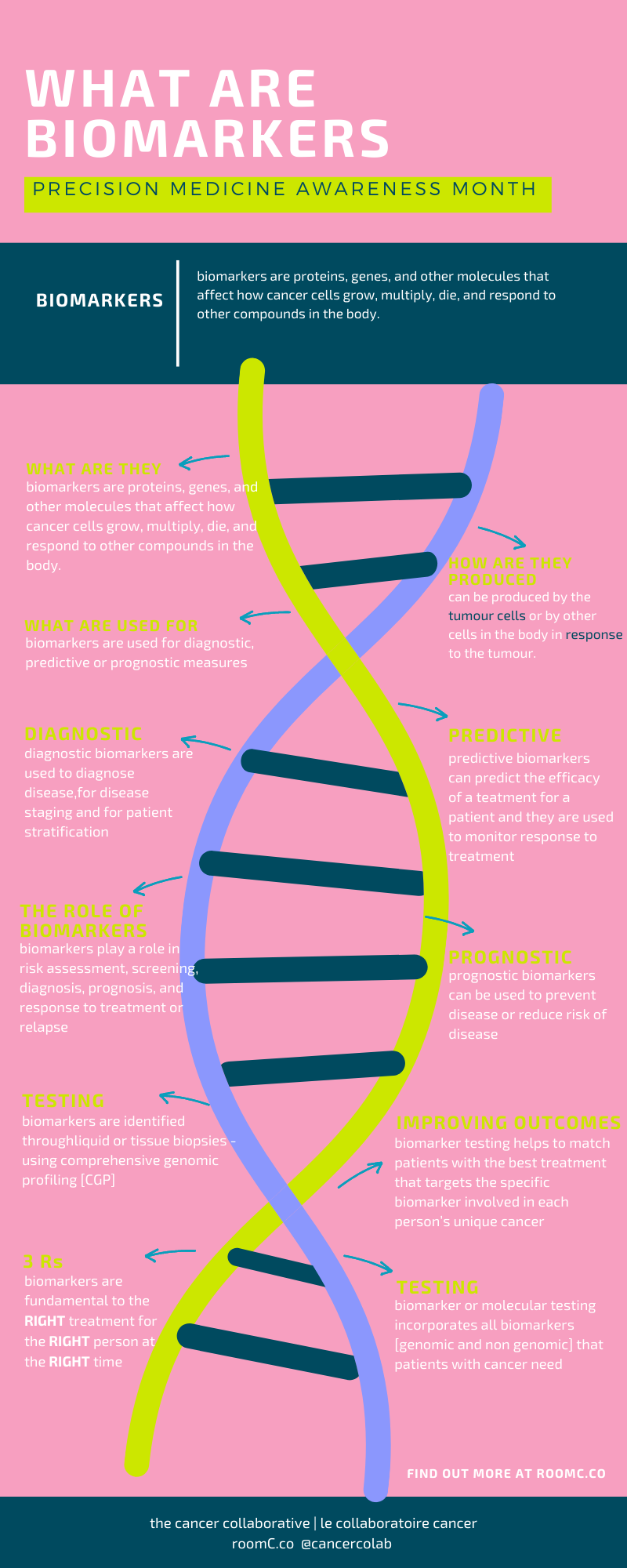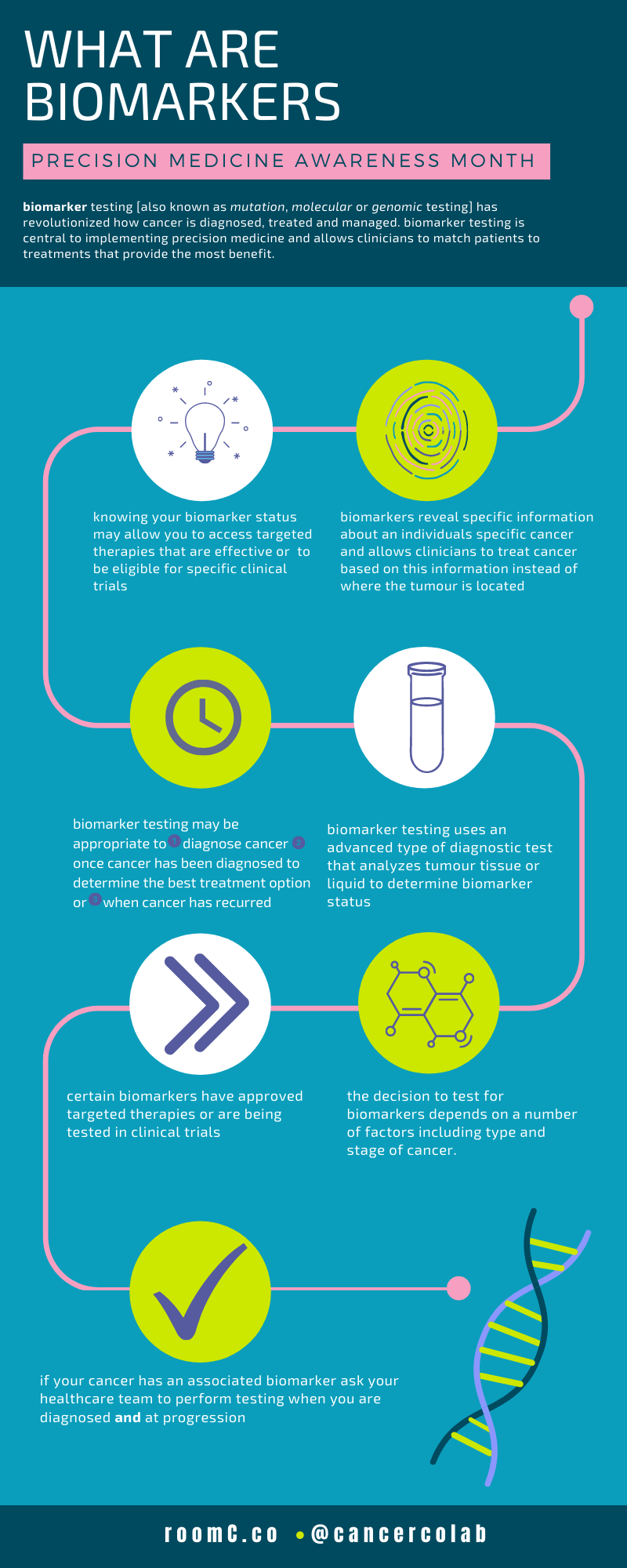what are biomarkers
- sabrina hanna
- Nov 18, 2020
- 2 min read
Updated: Mar 25, 2023
understanding cancer – cancer is a disease that is characterized by abnormal cell process involving uncontrolled cell growth and proliferation that alters normal cell behaviour. the genetic alterations within the cancer cells will be manifested by the release of biomarkers. and often, the genes continue to mutate changing the cells in the tumour over time. this may cause biomarker tests to vary over the course of the cancer. when a tumour’s molecular structure changes, this may develop into resistance to a certain treatment. essentially the cancer has mutated into a different form.
biomarkers are proteins, genes, and other molecules that affect how cancer cells grow, multiply, die, and respond to other compounds in the body. they can be produced by the tumour cells or by other cells in the body in response to the tumour. they are tested either by tissue [tumour] or liquid biopsy [plasma, urine or cerebrospinal fluids] and can be done to 1- diagnose cancer 2- after diagnosis to decide on a treatment plan or 3- after recurrence.
biomarkers can be diagnostic – used to diagnose disease, disease staging and patient stratification. they can be predictive – predict treatment response and monitor treatment response and they can be prognostic – they can be used to prevent disease or reduce risk of disease.
biomarker testing [also known as mutation, molecular or genomic testing or profiling] has revolutionized how cancer is diagnosed, treated and managed and has led to the development of precision medicine. the molecular characteristics of the tumour are defined by biomarkers. biomarker testing is able to identify patients that are more likely to benefit from a therapy, this allows clinicians to match patients to treatments, creating a tailored treatment plan for each patient, which constitutes the basis of precision medicine.
biomarkers can inform clinical decision making to improve patient outcomes and play an ever critical role in oncology and in clinical practice for risk assessment, screening, diagnosis, prognosis and response to treatment and | or relapse.
biomarkers are still in early development and not all cancers have identified biomarkers – however the number of biomarkers to be tested is going to increase proportionally in the near future, together with the comprehension of the molecular mechanisms of tumour growth.






